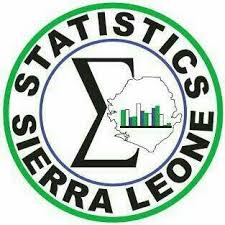In a pivotal move for gender equality and food security, Statistics Sierra Leone (Stats SL), in partnership with the Food and Agricultural Organisation (FAO) and the Ministry of Agriculture, Forestry and Food Security (MAFS), has officially launched the 2024 Women’s Empowerment and Nutrition Survey (WENS) Report and Anonymized Microdata.
The report provides a comprehensive look into the critical nexus of gender, agriculture, and nutrition in Sierra Leone—highlighting the systemic barriers that limit women’s full participation and leadership in agriculture.
At a well-attended launch event at New Sella Sport, King Harman Road, senior government officials, UN agencies, civil society organizations, and development partners gathered to celebrate the milestone. Deputy Statistician-General Lansana Kpewolo Kanneh emphasized the importance of evidence-based policymaking:
“This report links women’s roles in agriculture directly to household food security and nutrition—key to achieving our Medium-Term National Development Plan (MTNDP 2024–2030).”
Dr. Tenema Theresa Dick, Deputy Minister of Agriculture and Food Security, delivered the keynote address, recognizing women as the backbone of Sierra Leone’s agricultural economy, yet often marginalized.
“Change starts from data—not just numbers, but the real stories of women’s resilience and struggle.”
Key findings from the WENS 2024 report include:
•Widespread participation of women in agriculture, but limited influence in decision-making.
•Over half of surveyed women reported little control over household finances.
•Barriers to land ownership persist due to traditional systems.
•Gaps in leadership, financial inclusion, and nutritional autonomy remain significant.
Conducted under the 50×2030 Initiative, the WENS survey used advanced metrics developed by IFPRI and FAO, such as the Women’s Empowerment Metric and Minimum Dietary Diversity modules. Data collection was led by Stats SL using mostly female enumerators to ensure privacy and authenticity in women’s responses.
The WENS 2024 Report and anonymized microdata are now publicly accessible to policymakers, researchers, and development organizations. The Deputy Minister hailed the release as:
“A powerful tool to shape a future where Sierra Leonean women are not only feeding the nation but also leading it.”
Access the full report on the link 🔗 here https://microdata.statistics.sl/index.php/home:
Credit: Stats SL Comms & PR Unit











